What Preppers Prepare For
In an uncertain world filled with natural disasters, economic instability, and unforeseen emergencies, there is a growing community of individuals known as preppers. These are people who take proactive measures to prepare for the unexpected.
Preppers seek to ensure their survival and that of their loved ones by stockpiling essential supplies, developing survival skills, and creating contingency plans. If you’ve ever wondered what preppers prepare for, this is worth the read. Flashlights
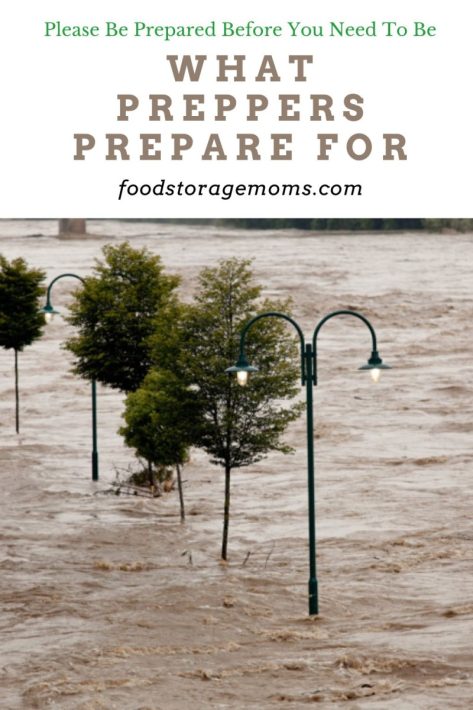
1. Natural Disasters
One of the primary reasons why preppers prepare is to be ready for natural disasters. These can include hurricanes, earthquakes, floods, tornados, wildfires, and severe storms. Preppers understand that during such events, access to vital resources like food, water, and electricity may be disrupted for extended periods.
They stockpile non-perishable food items, water filters or purifiers, and alternative power sources such as solar panels or generators. By having an emergency plan in place and having these supplies readily available, preppers aim to ensure their safety. Preppers look at the true challenges to be faced during and after a natural disaster.
2. Economic Collapse
In an increasingly interconnected global economy, concerns about economic stability drive many individuals to become preppers. The possibility of an economic collapse, hyperinflation, or a financial crisis looms large in their minds.
Preppers accumulate precious metals and they invest in tangible assets like land or other property. They also try to learn self-sufficiency skills like gardening or raising chickens and livestock.
By acquiring valuable skills, preppers hope to weather the storm. Emergencies can also take the form of potential economic downturns and the need to safeguard their financial well-being. 15 Valuable Skills I Learned In Home Economics
3. Pandemics and Health Emergencies
The recent pandemic has reinforced the need for preparedness in the face of health emergencies. Preppers recognize that a widespread outbreak of a contagious disease can strain healthcare systems, disrupt supply chains, and create panic.
They stock up on medical supplies such as face masks, gloves, and hand sanitizers. Preppers often maintain a well-stocked medicine cabinet and first aid kits to handle minor ailments and injuries. Being prepared for pandemics and health emergencies, helps preppers strive to protect their health and that of their loved ones. Infection Prevention: Tips to Stay Healthy
4. Power Outages and Grid Failures
In an age heavily reliant on electricity, the prospect of a power outage or grid failure is a significant concern. Preppers understand that power disruptions can occur due to extreme weather events, cyberattacks, or infrastructure failures.
To mitigate the impact of power outages, preppers invest in alternative energy sources like solar panels and wind turbines where practical. They also acquire battery banks or backup generators to ensure a steady supply of electricity for essentials like medical equipment. Power Grid Failure: What You Will Need
5. Civil Unrest and Political Instability
Growing social unrest and political instability around the globe have led many preppers to prepare for possible civil unrest scenarios. They believe that political or economic tensions can escalate into widespread protests, riots, or even civil war.
Preppers acquire self-defense skills, stockpile items they need for protection, and develop strategies for securing their homes. While not all preppers take this approach, many believe that being prepared for worst-case scenarios is better than being caught off guard.
What do preppers prepare for?
Preppers prepare for a wide range of scenarios, including natural disasters like hurricanes, earthquakes, or floods. They also consider emergencies such as power outages, economic crises, or civil unrest.
Why do people become preppers?
People become preppers for various reasons. Some want to ensure the safety and well-being of their families during emergencies. Others may have experienced a previous disaster and wish to be better prepared for future events. Some preppers also enjoy the self-sufficiency and independent lifestyle that prepping promotes.
Preppers come in all varieties. Some may be called “doomsday preppers” and they seem to go to extremes or operate on the fringe. You may hear of them having offsite shelter options like bunkers and living a survivalist lifestyle off-grid.
They also may have enough food stored to feed themselves truly for the long term and may dress in camo much of the time. These folks may plan for a real end-of-world event, thus the doomsday moniker.
Most of us are more mainstream and address our disaster preparedness with the idea that we’ll shelter at home. We still need to have a fully stocked emergency kit and the logical essentials of emergency food and water storage. The water needs to be sufficient to cover proper hydration, cooking, and limited personal hygiene and sanitation needs.
We plan to have items like a sleeping bag, extra clothing, first aid supplies, and other items. We plan on what’s necessary to make it through a catastrophe or a limited emergency situation. Much depends on where we live and what types of challenges are most common.
What kind of supplies do preppers stockpile?
As mentioned, preppers typically stockpile essential items such as food, water, first aid kits, and medications. We’ll also store batteries, flashlights, blankets, hygiene products, and tools. These supplies can help us sustain ourselves and our families during an emergency situation when access to regular resources may be limited.
I’ve always told my readers who may be beginners in the prepper arena that you don’t have to gather all these items at once. Based on budget and space limitations, start with one can or case of non-perishable food, smaller water containers, and filter systems, etc. You can work on your long-term food storage and water needs over time as your preparedness plans play out.
Do preppers only focus on physical supplies?
While physical supplies are crucial, prepping is not solely about stockpiling items. Many preppers also focus on acquiring skills like gardening, hunting, self-defense, and basic medical knowledge. They may also invest time in developing contingency plans and establishing communication networks with like-minded individuals.
Being able to communicate and receive information from various media sources is important. Yes, they are items, but all the things we’ve talked about provide confidence and promote self-reliance. There is peace of mind that you and your loved ones will survive and thrive if you have a plan in place.
How long do preppers store supplies?
The duration for which preppers store supplies can vary depending on personal preference and risk assessment. Some aim to have enough provisions to sustain themselves for a few weeks or months. Others strive for longer-term sustainability, sometimes even years.
Is prepping only for extreme scenarios?
Prepping can encompass both extreme and more moderate scenarios. Some preppers prepare for worst-case events. There are many who also take small steps to be better prepared for everyday emergencies like power outages or vehicle breakdowns.
Remember that challenges come in many forms. Your family’s circumstances can change at a moment’s notice. Accidents happen, jobs are lost, sickness takes hold, and numerous other events affect your daily routines and financial stability. Don’t be that family that wishes they had planned for the unexpected. Be proactive and take charge!
More Tips
- What Can Old Keys Be Used for in Prepping?
- 10 Simple Ideas on Beginning Prepping
- Why You Shouldn’t Put All Your Prepping Gear in One Place
Final Word
Preppers are individuals who recognize the importance of being prepared for various scenarios that could disrupt everyday life. Some may view prepping as extreme or unnecessary. The truth is that being prepared can provide peace of mind and increase one’s chances of survival in uncertain times. May God Bless this World, Linda
Copyright Images: Flooding Rains Depositphotos_8285048_S by Ginasanders, Mud Stream From Flooding Depositphotos_540121414_S by Vadzim

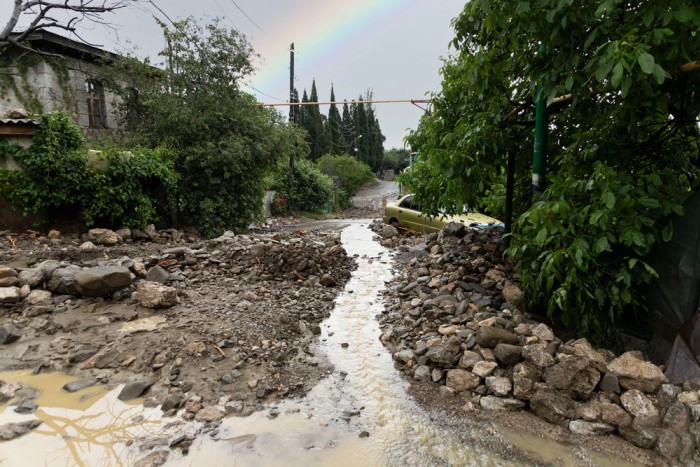

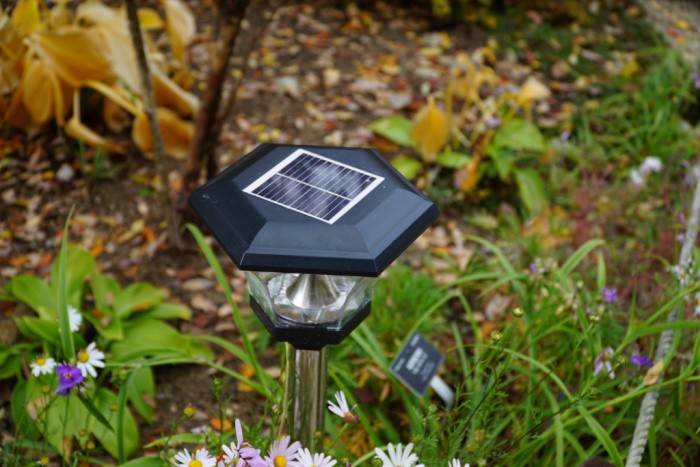
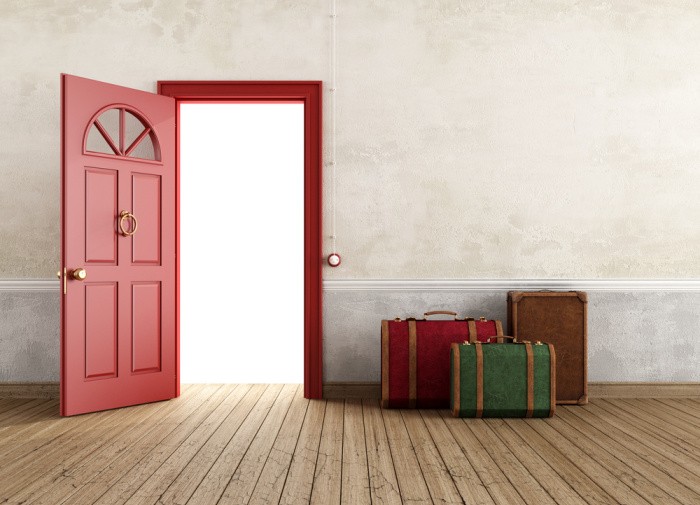
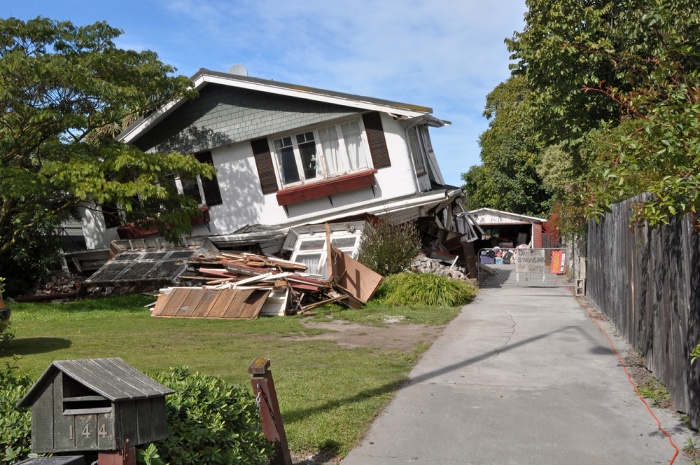
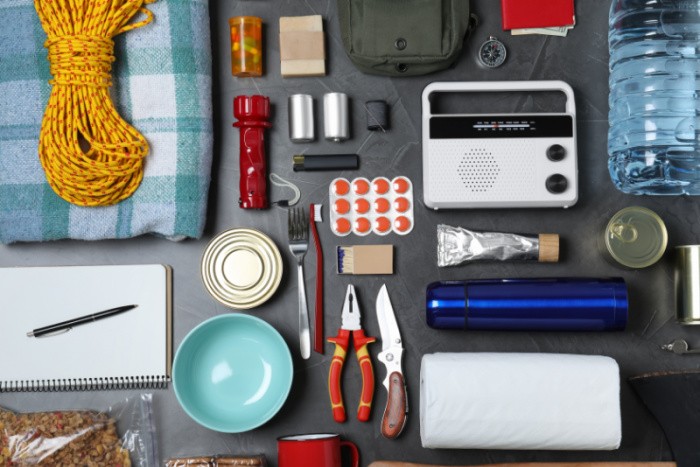
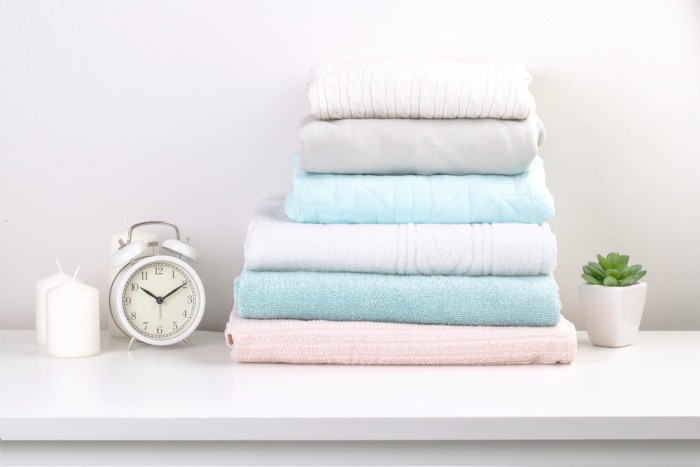
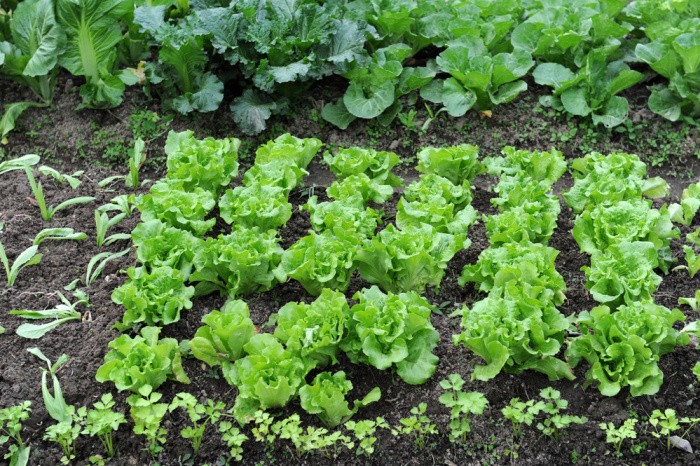













I’ve been at it since the 80s. I’ve used my preps numerous times.
I’ve always been into it because it made sense even as a teen. What really got me deep in it was deployment to the Balkans and watching things unfold and fall apart along with having a family that I’m responsible for.
I learned so much there.
Prepper is a relatively new term. I was a survivalist before it became an evil word portrayed by the media and politicians as such. We were heavy on skill sets and equally balanced in supplies and stuff.
Most “preppers” I know are heavier in stuff and lacking in skills. They wish only to buy their way outta the issue. Skills are difficult so I avoid that term and them for the most part.
I look for balance because if you avoid things when they are easy you’ll completely fold in tough times.
Hi Matt, I love your perspective. I have never liked the word prepper or survivalist at least for myself. Is it because I’m a woman, I don’t know. All I ever wanted was to marry a good man (which I did) and have kids. BUT, my goal has always been to be able to take care of them and teach them skills to be able to take care of themselves. I’m the “prepper” in the family, but I never use that word! LOL! My goal in life is to get people prepared in food storage, water storage, how to cook, and how to protect themselves. Which you know I can’t talk about the last one because of censorship.But you have way more experience than most of us. Love your comment, Linda
I like the Boy Scout motto of “be prepared”. My husband and I have always lived it since we were married. I don’t know if that’s from being raised by parents who went through the Great Depression when they were young or what. At any rate, as a woman, I want to ensure that my family is taken care of. God gave us all a brain and we are to use it. Common sense in my opinion! And yes, it’s not so common these days!
Hi Paula, I love this, you are so right, “be prepared”! Yes, God indeed gave us a brain and we must use it! Commonsense, you nailed it! Linda
Linda, I have called myself a pantry person, since we made it safely thru the Buffalo Blizzard of ’77. I would can and freeze and stockpile groceries to limit trips during snowy weather. It is much easier to carry heavy and bulky supplies on sunny summer days. You and your followers have taught me much more. I have expanded our supplies from 3-4 months to 9-12.
My husband has been very handy for the last 49 years. Our abilities have lessened with our age, but we do our best.
Forty-seven people died during our most recent Christmas Blizzard. Many because they didn’t do the very minimum to keep themselves safe. For us, the blizzard was just a snowy day in Western New York, and for that I thank you. Please, everyone stay safe and healthy.
Hi Chris, thank you for your kind words, my sweet friend. This last winter I saw a couple standing on their snow packed porch asking the TV news reporter to ask the city (I can’t remember where) to bring them some food and water. Well the roads were snow packed and they had not had any food or water for 3 days as I remember. The roads could not be cleared because there was so much snow. I thought to myself, wait, you (the couple on the news) do not have any food or water. What is in your cupboards??? I just shook my head. I thought surely if they lived where snow storms can hit why didn’t they stock up BEFORE the storm. Well, I guess they didn’t and they expected the city to deliver food and water to their home. I don’t get it. I never will, we are responsible for our own family. Wow, 47 people died during last years Christmas Blizzard, that is so sad. I like your phrase a “pantry person”!! I love it. please stock up everyone, stay safe, and stay healthy. Linda
I was brought up to be prepared – generally for winter related issues. We raised our own meat, vegetables and fruits. We canned what we grew and made sure we had everything in order for the winter. My parents did grow up during the depression. If mom could see the shelf in the pantry, she made a list of things we needed. We used what we had and made do with what we had! In this throw away world we live in using things up until the last thread is sadly lacking.
So, my “prepping” really started just before Y2K – a group of women invited me into their group to be prepared for the “big shut down”. It was going to be just my daughter and myself as my husband had already left us (no big loss)! I did a lot of computer searching for recipes, tips on being prepared for Y2K. These ladies were very concerned about me and how I was going to haul water – it was about 1 1/2 miles to the nearest creek and how I was going to heat my house which was all electric. It was interesting in that we had a power outage just before the turn of the century. Two of these ladies came by to see if we were OK. They were surprised to find that we had lights on in our house. My ex failed to take the 10 antique kerosene lamps he inherited from his grandmothers. They were all full of kerosene and we had 2 or 3 lit! We did not go without lights. We didn’t, however, have the power to cook anything inside. So, we had a small stockpile of wood and cooked outside over a camp fire. Easy!
I have had the pleasure of teaching my daughter and SIL gardening over the last few years. I have also taught my daughter how to can what she grows. They share their bounty with me. The price they pay for my teaching abilities!!!
Keep on prepping! Store what you eat and eat what you store – keep things in constant rotation. That goes a long way for new preppers! Start buying on-sale. Use coupons if available. I have a Safeway app that I can “clip” coupons. I don’t always buy name brand items but when I do, those on-line coupons save me quite a bit. Yesterday, I saved $18 on a $70 grocery run. I search out the sales! Also, learn how to store your supplies. Once you have a couple of months’ worth of short term non-perishable items, start looking into long term storage. I have both. I don’t use the long term food storage (freeze dried foods) unless I absolutely need to which has only happened a couple of times in the last 10-15 years.
Hi Leanne, oh my gosh, I remember Y2K, people thought the world was going to end. It didn’t, as we realized the next morning. I do remember people were nervous to invest money in the stock market, they were pulling all of their cash out the bank, yes we had a Run On A Bank”, it was taken over by the FDIC. What a blessing that you learned such great skills growing up and then taught them to you daughter and SIL. What a blessing to have had neighbors come over to check on the two of you. Thank you for sharing your story, I love it! Linda
Hello Linda, I always hone in on your information gleaning all the information I can find. I’ve been doing this stuff for 78 years now (all my life) It started out early because I lived on a hillside pig farm w/o ever a dollar or a budget. Never had a spare penny for anything. But I hated that lifestyle of dads, and upon H.S. graduation, I fled that farm, went to the big city, found a job, went to college. Now retired, During life I have learned to save for the uncertain future, I have built 2 bunkers on the properties I formally owned. Presently I am good for around 2 or 3 years, for a dozen people. I have no children and most of my in-laws could care less.
Hi Henry, oh you know I love hearing how prepared you are! Two bunkers, what a blessing, my friend. Most of my relatives could care less, we’re in the same boat! I have neighbors that travel and buy fancy cars and houses, but you sure can’t eat those tires attached to that BMW or Mercedes! Yep, I’m driving a 15 year old car and it still runs, it’s getting close to being replaced. But then water storage is more important to me than a newer car. That’s how I roll. Good job, I applaud your efforts. Linda
Back in 1997, I was caught unprepared for an urgent situation (I was put on bedrest at 24 weeks pregnant) and I was determined to never be caught unprepared again. I think, especially for women, that the word prepper has negative connections; I think of myself as a prepared person. I’m not anticipating a zombie apocalypse or anything like that. I do expect us to get colds and the ‘flu this year, especially with a 2 year old in daycare living in the house, and I want to be ready. I have my ‘flu kit with tylenol, cold medicine, ‘flu medicine, a thermometer (since the one in my medicine cabinet is never then when I need it), a box of tissues, a trash bag for used tissues, cleaning/sanitizing wipes and ever since COVID came into our lives, face masks. It’s all in a handy tote so I can hand it to the person who is sick and hopefully keep them contained in their bedroom. I have a lights out kit for when the electricity goes off.
I have food storage and have relied on it several times. Mostly job losses and medical emergencies where we didn’t have time to go to the store. Part of my current preparedness plan is a membership in Walmart Plus to allow for grocery delivery.
Hi Topaz, I’m with you on the word prepper but people view it differently, I’m a prepared person as well. I love hearing you have different kits ready for your family, that makes me so happy! I’m going to look into that Walmart Plus cost, I would rather stay out of the stores for the few items I need to purchase. Your experience with needing bedrest at 24 weeks into your pregnancy would have been a scary situation. We all learn about needing to be prepared in different ways. It’s a blessing in so many ways because it teaches us we will never let that happen again. Good job, my friend! Linda